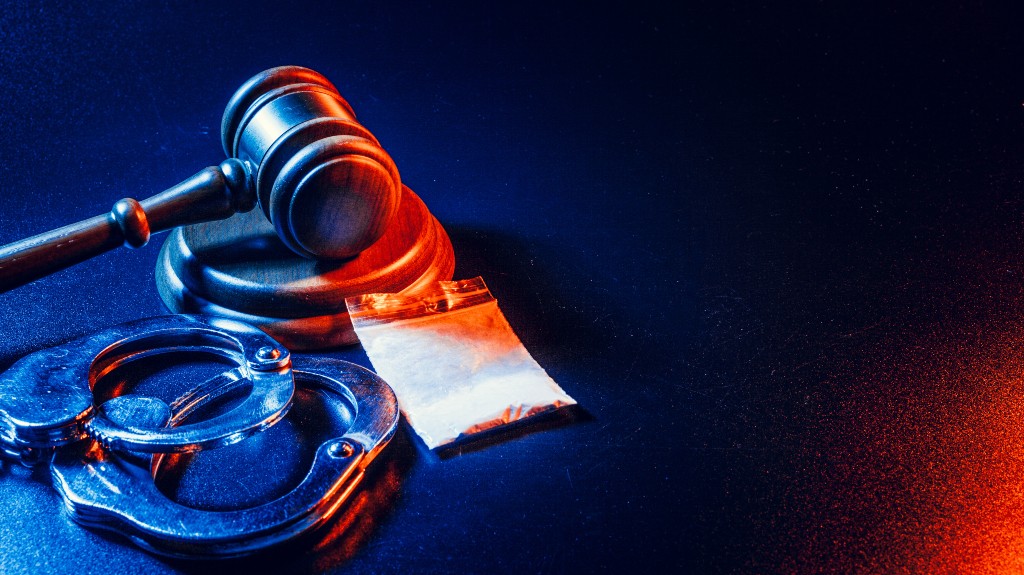If you’ve been arrested for violating 720 ILCS 570.0/402 in Illinois, it’s normal to feel overwhelmed and unsure of what comes next. This statute deals with the unlawful possession of controlled substances and carries serious legal and personal consequences. Let’s break down what this charge entails, what the state must prove, the possible penalties, and why hiring a private attorney might be your best course of action.
What Does the State Need to Prove?
To convict someone under 720 ILCS 570.0/402, the prosecution must prove two primary elements:
- Knowledge: The state must demonstrate that you knowingly possessed the controlled substance. This means that you were aware of the substance’s presence and knew it was a controlled drug.
- Possession: Possession can either be actual or constructive. Actual possession means the drugs were on your person, such as in your pocket or bag. Constructive possession occurs when the drugs were in a location you had control over, such as your car or home, and you were aware of their presence.
It is not enough for the prosecution to merely show that drugs were found near you. They must connect you to the drugs in a meaningful way. An experienced lawyer can challenge these elements and argue issues like lack of knowledge or insufficient evidence of possession.
Possible Penalties for Violating 720 ILCS 570.0/402
The penalties for drug possession depend on the type and amount of the substance involved. Common controlled substances include cocaine, heroin, methamphetamine, and fentanyl. Here’s an overview of the potential consequences:
- Class 4 Felony:
- Amount: Less than 15 grams of substances such as cocaine or heroin.
- Penalties: 1 to 3 years in prison, probation eligibility, and up to $25,000 in fines. Probation may include mandatory drug treatment programs or community service.
- Class 1 Felony:
- Amount: 15 to 100 grams.
- Penalties: 4 to 15 years in prison, with fines up to $200,000 or the street value of the drugs, whichever is greater. Probation is not typically an option for these amounts.
- Class X Felony:
- Amount: 100 grams or more.
- Penalties: 6 to 30 years in prison for 100-400 grams, 8 to 40 years for 400-900 grams, and 10 to 50 years for over 900 grams. Fines can reach $500,000 or the drug’s street value. Probation is not an option for Class X felonies.
Alternatives to Prison Time
For first-time offenders or individuals possessing smaller amounts of controlled substances, Illinois law provides alternatives to incarceration, which can be a lifeline for those seeking to turn their lives around. These alternatives include:
- Probation: Often paired with conditions such as attending drug treatment programs, counseling, or completing community service.
- Diversion Programs: Illinois courts may allow eligible offenders to complete drug education, treatment, and rehabilitation programs. Successful completion often results in reduced charges or even dismissal of the case.
- Drug Court: Designed for nonviolent offenders, drug court provides intensive supervision and treatment as an alternative to prison. Participants must adhere to strict conditions but benefit from avoiding a criminal record upon successful completion.
- Second Chance Probation: Available to certain offenders who plead guilty. If the conditions are met, including treatment and no additional violations, the charges may be dismissed after the probationary period.
Why You Need a Private Lawyer
While public defenders are dedicated professionals, they are often overburdened with high caseloads. This can limit the amount of time and resources they can devote to your case. A private lawyer can offer you personalized attention and tailor a defense strategy to your specific circumstances. Here’s why hiring a private attorney is critical:
- Investigation: A private attorney can thoroughly investigate the details of your arrest, challenge illegal searches or seizures, and identify weaknesses in the prosecution’s case.
- Negotiation: Skilled private lawyers often have more flexibility and time to negotiate favorable plea deals or argue for reduced charges.
- Expertise: Private lawyers specializing in drug crimes bring experience and knowledge that can make a difference in complex cases.
- Communication: Unlike a public defender who may have limited availability, a private attorney is accessible to answer your questions and keep you informed throughout the process.
Take Action Now
If you’re facing charges under 720 ILCS 570.0/402, time is of the essence. Hiring an experienced criminal defense attorney can mean the difference between a harsh sentence and a second chance. A private lawyer will fight to protect your rights, challenge the evidence, and work to achieve the best possible outcome in your case.
Remember, a charge is not a conviction. You have the right to a fair defense, and taking proactive steps now can make all the difference for your future.Contact Fabbrini Law Group online or call 312-494-3131 to schedule a consultation.


